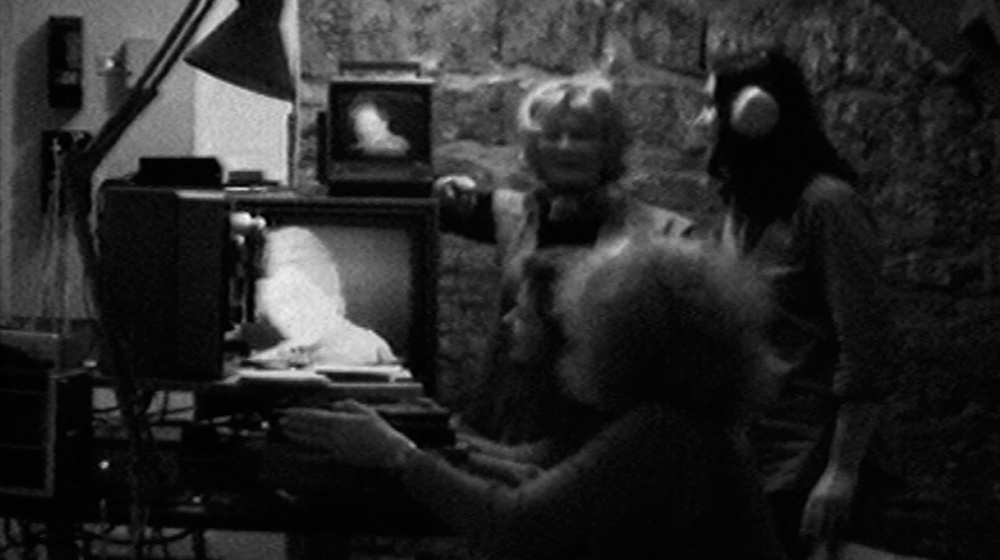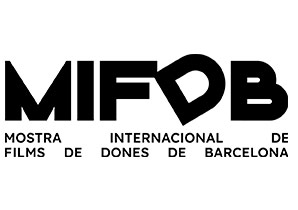Feminist Film Manifestos
Feminist Film Manifestos VI
International Women’s Film Festival at the CCCB
Audiovisuals
Online
The sixth edition of Feminist Film Manifestos is transferring its programme to the Filmin platform, meaning that you can continue to experience the plurality of voices, aesthetic commitments, and concerns of cinema directed by women. This year, you will be able to enjoy collectively created films from the decade of the 1970s.
In the 1970s, several feminist organisations highlighted the need to address issues and perspectives that, despite being present on the agenda of feminist movements of the time, remained elusive and outside the accepted canons of mainstream film production. This led to films being created through collective discussions resulting from the work of activists at that historic time.
At this sixth edition of the Feminist Film Manifestos, we’ve recovered films produced by some of these groups in Europe and the United States: the Sheffield Film Co-Op and Leeds Animation Workshop from the UK; Iris Films from the USA, the "150 Ore’" programme from Italy and Les Insoumuses from France.
All the films can be watched at Filmin.
Programme
- Women and Children Last, Sheffield Film Co-Op, Great Britain, 1971, 16 minutes
This first film by the Sheffield Film Co-Op, made with the collaboration of Sheffield Cablevision, portrays the difficulties of getting around a city for many women with small children, at a time when the city was not designed or built to move around with pushchairs, nor were they welcome on buses or in shops. The film condemns this situation and appeals to the relevant authorities and shopkeepers to change the situation.
- Maso et Miso vont en bateau, Les Insoumuses, France, 1976, 55 minutes
The Les Insoumuses feminist video collection dissects and responds, point by point, but with humour, to Bernard Pivot’s special broadcast with Françoise Giroud, Secretary of State for the Condition of Women. “On the 30th of December 1975, after watching Bernard Pivot’s programme on Antenne 2 entitled ‘One more day and International Women’s Year will be over’, we felt a huge need to express our point of view and to respond...”. A veritable political kidnapping, a humorous hack and a manifesto for feminist video. [Copy from the archive of Centre audiovisuel Simone de Beauvoir.]
- Soy Cámara, International Women’s Film Festival, Spain, 2020, 20 minutes
- Seeing for ourselves – Women working with film, Margaret Williams, Great Britain, 1983, 56 minutes
This piece, co-produced by Channel 4 and the British Arts Council, is about the experience of Circles, an organisation set up in 1980 to promote films made by women and to encourage research and discussion regarding women’s experiences in the audiovisual sector. With a very particular narrative, this documentary includes the voices and experiences of some Circles co-founders such as Joanna Davis, Tina Keane, Annabel Nicolson, Felicity Sparrow and Lis Rhodes. It also includes two films by historical filmmakers who’ve been vindicated at such meetings: A House Divided by Alice Guy (1913) and La souriante Madame Beudet by Germaine Dulac (1922).
- In the Best Interest of the Children, Frances Reid, Elizabeth Stevens and Cathy Zheutlin, United States, 1977, 53 minutes
A film produced by Iris Films, a feminist film production and distribution group set up in the seventies in the United States. This piece documents lesbian motherhood and shows, in an innovative way, how ethnic and class inequalities intersect through the comments of various lesbian mothers and their sons and daughters.
- A Question of Choice, Sheffield Film Co-Op, Great Britain, 1982, 18 minutes
A documentary portrait of two cleaning women, a school cook and a lollipop lady that reveals the limited employment opportunities available to English women with families in their care in the early 1980s.
- Give Us a Smile, Leeds Animation Workshop, Great Britain, 1983, 13 minutes
Leeds Animation Workshop stands out for its collaborative work in the field of animation and for its often humorous approach in dealing with such issues as equality and discrimination. Give Us A Smile shows the effects of the daily harassment and threats to which women are subjected: from comments in the street, and sexist imagery in the media, to physical violence. Using quotations from real cases, published reports and lived experience, it also exposes institutional discrimination within the legal system. But don't expect a depressing story about vulnerable victims – this film uses humour and determination to visualise collective strategies for a feminist fightback.
- Scuola senza fine, Adriana Monti in collaboration with the ‘150 Ore’ training programme, Italy, 40 minutes
Between 1974 and 1982, the so-called 150-hour training courses took place in Italy. Initially these were aimed at factories and farm workers but were later also extended to pensioners and housewives. Scuola senza fine is based on a pedagogical experiment, taking the form of classes given to a group of housewives through collaboration between the director, the students and their teacher, Lea Meandri. The aim of the film is to show the close relationships established between the women, the discussions regarding how they are represented and how they wish to be represented, and, in short, how the course served as a place for self-awareness and to reappraise the values that give meaning to their lives.
- The Life and Hard Times of Susie P. Winklepicker, Deborah Hall and the Women and the Law Collective, United Kingdom, 1986, 35 minutes
A combination of documentary, black comedy and musical, this highly original piece, made in collaboration with the Women and the Law Collective, shows some of the ways in which, throughout history, national states have designed systems that encourage women to be economically dependent on men.
--------------------------------
Original language with Spanish subtitles.
This activity is part of Feminist Film Manifestos
Related contents
A different remedy for the same complaint. Soy Cámera online
How do you follow a (cinematographic) remedy that insists there is no remedy? Feminist approaches represent a perpetual provocation, difficult to assimilate and defying the classification systems of the past. One of the practices most often repeated by female cineastes, from the early days ...




